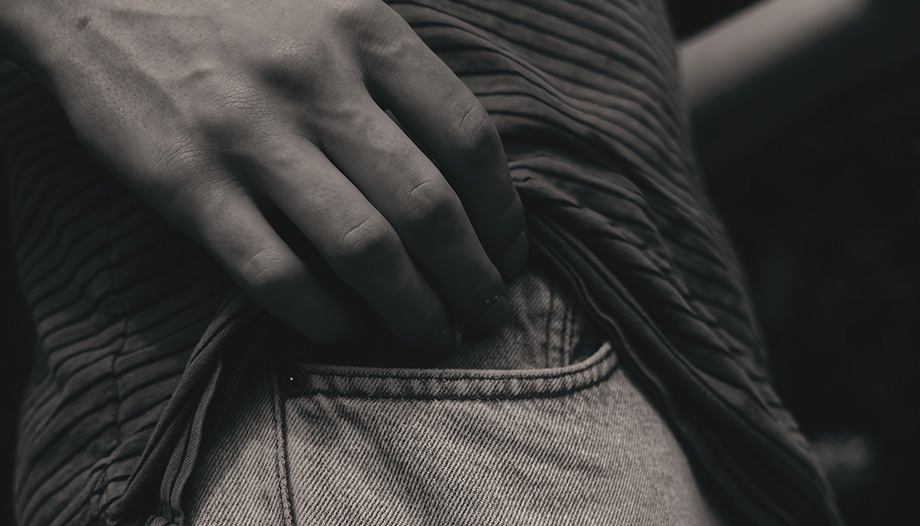What I had in my pockets were my hands.
I was on my way to college on one of those cold March mornings and my hands were in my pockets. My hands needed warmth and my pockets provided it. But this hands-in-pocket image was very striking to my friends. They said;
- You go to school light.
I walked into the 15-minute train ride to the university with my hands in my pocket and realized that I was indeed not going light as my friends observed. Granted, I was going without my backpack and my friends' observation was accurate, but they had missed a trick.
Earlier I had been reading Chesterton's "Enormous Minutiae" and remembered the essay "What I found in my pockets" and decided to check what I had in my pocket. The depth of my pockets showed that it was an immense abyss and an unknown treasure.
The first thing in my pocket was my train ticket. It had a lot of things written on it, but the words Roma and Piazza del Popolo were enough to hold my attention. Rome, the eternal and universal city that unites people. Then I looked around the train and saw people of all races and heard different languages, both those I could understand and those I could not. I also saw the young and the old, different generations. This is Rome, I thought.
Chesterton compared his pockets to a British Museum for treasures, I compared mine to the Vatican Museum because the next thing I found in my pocket was a Vatican Museum ticket with an image of Laocoön.
Laocoon, the Trojan priest of Greek mythology who was attacked by two large sea serpents along with his two sons. The history of the foundation of Rome is linked to that of Laocoön. Then I remembered how the Roman civilization has been able to build on previous civilizations and not only to erode it. This is the "genetic code" of the Vatican Museum that demonstrates that "the great classical and Judeo-Christian civilization are not opposed, but converge in the one plan of God". Then I remembered our current culture, with its obsession to cancel everything that precedes it, and I was saddened. But that was not for long, I was glad the moment I fixed my gaze again on the image of the bill, because it is a clear example and hope for our times.
The next thing I had in my pocket was my black pen. It looked like a thick purple pen. I thought about darkness, about death, about what is hidden and what is done in secret like praying, fasting and giving alms. I thought of those deep roots that go deeper and deeper into the earth and seem to feed on the darkness. The paradox of losing one's life to save it. The thick purple and the black. I went off on a tangent. I concluded with the thought that yesterday was Ash Wednesday and that Meménto pulvis, Memento mori and Memento vivere are related (remember you are dust, remember you will die and remember to live).
The next thing I had was a book of essays by C. S. Lewis. I read a sentence that said, "though Reason is Divine, human reasoners are not" and that "if we want to be rational, not occasionally, but constantly, we must ask for the gift of Faith." The paradox of reason and faith clearly explained.
Just as I started thinking about the concept of paradox, the next thing I pulled out of my pocket was my phone. I got a text from a friend that said, "I know what I'm giving up this Lent: meat and chicken." I thought to myself that chicken is not meat. Only then came the correct message with the asterisk: "Beef and Chicken". I kept thinking about another paradox. How starvation can fill us up. How abstinence can make us more complete. The paradox of Christian fasting.
I thought of another. What if at the same time that we gave up things, we set out to gain certain things?
As I was thinking, I was forced to take the other thing out of my pocket. The tissue. That soft white paper that has been a constant treat these days. I needed it after 15 minutes with the white mask over the lower part of my face. I thought of the many eyes I have seen thanks to the upper face being the only part exposed. I remembered the Eastern Nigerian language that expressed the concept of love as looking one in the eye. I don't know how many face masks I have had in my pocket these past few years, but I certainly had one in my pocket shortly before.
I can't tell you all the things I have in my pocket because my train ride was over. Nor does space permit me to talk about the images of the coins I had or the image of the Crocifisso speaking to St. Thomas that I got the day before in Naples. What I can say is that my friends were wrong when they said I was going light. They don't know much about what Chesterton has called "Enormous Minutiae," those little things of tremendous value. As he wrote in the preface to the book, "Let us not let the eye rest. Why should the eye be so lazy? Let us exercise the eye until it learns to see the startling facts that run across the landscape as flat as a painted fence. Let us be ocular athletes. Let us learn to write essays about a stray cat or a colored cloud."









